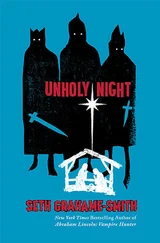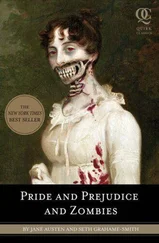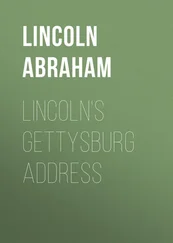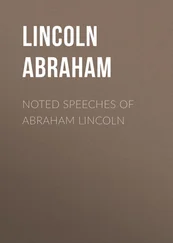The young men would holler with excitement when they crossed paths with a steamboat, those miraculous, gleaming stern-wheelers puffing and splashing their way against the current. Their excitement would build at the sight of distant smoke rising from the river ahead, then crescendo as they approached and passed, shouting greetings and waving to passengers, pilots, and clerks.
The noise of engines and churning water. Black smoke rising from its chimney and white steam from its pipes. A boat that could take a man all the way from New Orleans to Louisville in under twenty-five days. Were there any limits to the ingenuity of man?
This excitement having quieted, they would float for miles with nary a sound.
It was a sort of peace I have rarely enjoyed since. As if we were the only two souls on earth—all of nature ours to enjoy. I wondered why a creator who had dreamt such beauty would have slandered it with such evil. Such grief. Why He had not been content to leave it unspoilt. I still wonder.
When the sun dipped out of sight, Allen and Abe would start looking for a suitable place to anchor—a town, if possible. One night, not long after they’d passed through Baton Rouge, Lincoln and Gentry tied up on the Duchesne Plantation, securing the flatboat to a tree with rope. As was their routine, the young men fried their supper, checked to see if the ropes were secure, and adjourned to their shelter. Here they would read or talk until their eyes grew weary, snuff their lantern, and sleep in perfect darkness.
I woke with a start and reached for the club that I kept near. Springing to my feet, I saw the trace of two figures in the doorway. I daresay they were a good deal surprised at my height—and a good deal more surprised by the ferocity with which I bludgeoned them about the head. I chased them (bludgeoning my own head on a crossbeam as I did) out onto the deck, where the moon revealed them in full. They were Negroes—seven in all. The other five were busily trying to untie our boat. “Off with you devils!” I cried, “before I brain the lot of you!” To make them know my sincerity, I cracked another across his ribs, and raised my club to crack another. This proved unnecessary. The Negroes fled. As they did, I chanced to see a broken pair of leg irons around one of their ankles, and knew the truth at once. These were no common thieves. They were slaves. Likely escaped from this very plantation and looking to throw off the scent of the dogs by making off with our boat.
Gentry was roused by the commotion and helped Abe chase the remaining slaves into the woods. Satisfied they wouldn’t return for the moment, they cut the flatboat loose and took their chances navigating the Mississippi at night.
We set out, Allen holding our lantern at the bow and squinting into the night, me working the steering oar from atop our shelter, trying to keep us dead down the middle. I could not help but steal a look back at the bank, and as I did, I saw a white figure running toward the river from the plantation. Here was the first of the overseers come to reclaim his slaves. But this man, this tiny white figure, did not stop running at the river’s edge. He jumped to the opposite bank in one long, impossible leap. They did not run from men or dogs.
They ran from a vampire.
I thought briefly of steering us into the muddy bank. Of taking the bundle from under my bed and giving chase. I cannot say whether I thought the attempt hopeless, or the victims worthless. I can say only that I did not stop. Allen (it now dawning on him how perilously close he had come to having his throat cut) presently let forth a stream of profanity the likes of which I had never heard, and much of which I did not understand. Cursing himself for failing to bring a musket along. Condemning “those murderous sons of bitches.” I remained silent—focused only on keeping us dead down the middle. I could not bring myself to hate our attackers, for it occurred to me that they were merely trying to preserve their lives. In doing so, they had thought it necessary to deprive me of mine. Allen went on. Something about “no-good black” something or others.
“Judge them not equally,” I said.
II
Allen and Abe reached New Orleans at midday on June 20th, twisting round the ever-tightening bends of the Mississippi as they neared its center, where they would be able to sell their remaining goods (and sell their boat for lumber) at any number of busy wharves. A light rain greeted them, welcome relief from the oppressive humidity that had dogged so much of their trip downriver.
The north of the city presented itself first—sprawling and lively. Farms became houses. Houses became streets. Streets became two-story brick buildings with iron railings on their balconies. So many sailing ships! So many steamboats! Flatboats numbering in the hundreds, all clamoring for their little piece of the great river.
New Orleans was a city of 40,000, and the South’s gateway to the world. Walking along its wharves, one was likely to encounter sailors from every corner of Europe and South America—even some from the Orient.
We could not be rid of our cargo quickly enough. How we longed to explore this city of endless wonders! I was all astonishment, for I had never in my life seen such multitudes—their tongues dripping with French and Spanish phrases. Ladies fanning themselves in the latest fashions, and gentlemen clad from head to toe in suits of the highest quality. Streets filled with horses and carts; merchants selling every ware imagined. We strolled the rue de Chartres; beheld the Basilica of St. Louis in Jackson Square, so named for our president’s heroic defense of the city. Here, teams of men and mules dug trenches for gas pipes. When their months of work were finished, one of them proudly sang, the city would “gleam like a sparkling jewel in the night, with nary a torch or a candle in sight.”
Abe was struck by the liveliness of the city and its people. He was also struck by the age of the things around him.
I imagined myself conveyed to those places in Europe that I had so often read about. Here, for the first time in my life, were homes with ivy-covered walls. Here were men of letters. Architecture and art. Here were vast libraries filled with eager students and appreciative patrons. Here were all the things that my father would never understand.
Marie Laveau’s boardinghouse on St. Claude Street was hardly the most impressive of the city’s Spanish-style buildings, but it was good enough for a pair of Indiana flatboatmen to rest their heads for a week.
There was a saloon not far from Mrs. Laveau’s where one could have his fill of rum or wine or whiskey. Flush with money from selling our goods and our boat, and flush with the excitement of being in such a city for the first time, I admit we indulged in these—more even than a pair of young, foolish men should have. The saloon was overfilled with sailors from all parts of the world. Flatboatmen from every point on the Mississippi, Ohio, and Sangamon. A brawl seemed to break out every third minute. It is a wonder they did not break out more frequently.
Surly boatmen weren’t the only strange characters Abe encountered during his first twenty-four hours in New Orleans. The following morning, as he and Allen stumbled through the streets in search of an inoffensive breakfast—clutching their aching heads and shielding their eyes from the sun—Abe spotted something incredible coming toward them on Bienville Street.
… a coach of lustrous white, pulled by a pair of white horses, and driven by a boy wearing a coat of the same color. Behind him sat a pair of gentlemen: one cherubic and red-cheeked, his suit an unremarkable blend of greens and grays. The other wore a suit of white silk, a complement to his fair skin and long white hair. His eyes hidden behind dark glasses. He was as obvious a vampire as I had ever laid eyes upon, and by all appearances, the wealthiest. Elegant and refined. Unencumbered by shadows. Free to mingle as he pleased. And laughing. He and the living gentleman were in the midst of what looked a very cheerful conversation. I could think only of staking him through the heart as his coach neared. Of chopping off his head. How the blood would look against the white silk of his coat! Alas, I could only watch him—restrained by the absence of weapons and the presence of an aching head. The white-haired vampire gave me a knowing look as he passed. And then the strangest feeling… the feeling of invading eyes reading the pages of my journal. The sound of a voice with no source…
Читать дальше












